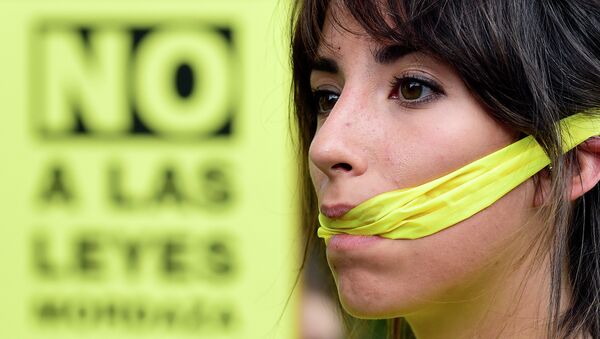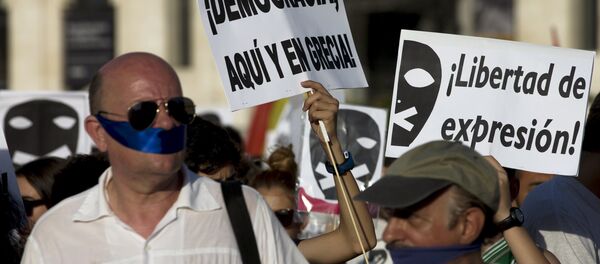MOSCOW (Sputnik), Daria Chernyshova — The law, which came into force on July 1, prohibits citizens from making video recordings or photographing police and their activities if it is deemed to be endangering the safety of the officer or if it is impeding the operation in progress.
"At RIS we have denounced that the gag law is formulated in overly vague and broad terms thus permitting too much unpredictability in its interpretation," Lydia Vicente Marquez said. "This undermines the principle of legality which requires rules to be accessible, foreseeable and sufficiently precise to prevent arbitrary use of authorities’ discretion when exercising public power."
She was tracked within 48 hours because "the unauthorized use of images of police officers that might jeopardize their or their family's safety or that of protected facilities or police operations" is a prohibited act under Spain’s new legislation.
"Legal reforms as important as the gag law have an impact on legal certainty and citizens' ability to adapt their conduct to the new legal order that has been so heavily amended," Marquez said.
She underlined that rule of law must have at its foundation clear and accessible explanations so that individuals can regulate their conduct in accordance and so that power is clearly defined.
Fines for photographing Spanish police, for assembling in groups without receiving government authorization and gathering in front of the Congress buildings range from 600 to 30,000 euros.
The lower house of the Spanish parliament approved the bill mid-December 2014, triggering large protests across Spain.




